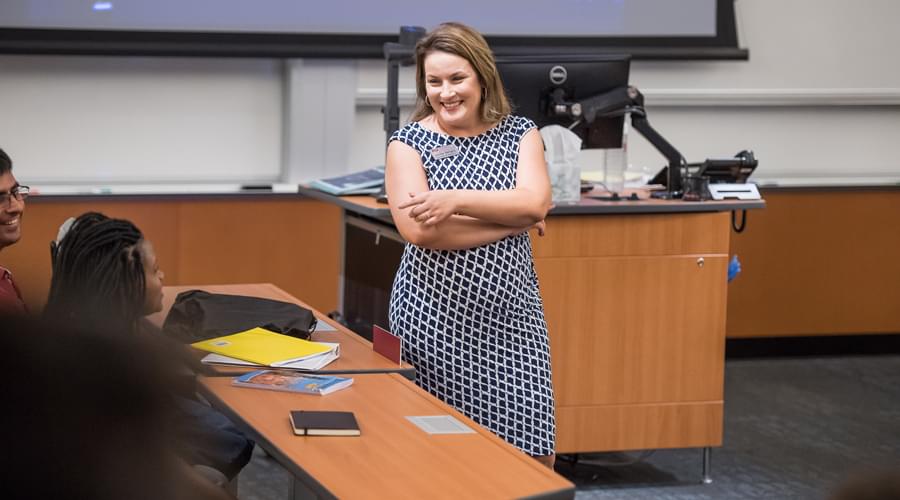Being on a college or university faculty provides you with the opportunity to not only work directly with students, but also to have time to conduct your own research. You need to be comfortable working independently, as well as interacting with students and colleagues, as you divide time between preparing for your courses by writing syllabi, collecting resources, grading assignments and holding office hours to mentor up and coming health science professionals. Staying current on all trends related to your health specialty can also help ensure you’re able to accurately address questions from students and present them with the most relevant information.
This challenging career path requires you to have a deep understanding of and a passion for your specialized subject matter, which is why your educational background is so important. “Make sure your passion for the content comes through in lectures,” advises Trujillo, who also suggests professors dedicate extra time to craft a positive and fulfilling lecture that will also entertain students.
While most full-time university faculty earn their doctorate prior to becoming a professor, some community colleges and other institutions may only require a master’s degree for instructors. Part-time faculty, or adjuncts, also may only need their master’s to teach. Regardless, it’s important you obtain at least one graduate degree in a relevant field when considering moving into this profession. An online Master of Science in Nutritional Science (Dietetics) from ASU presents a rigorous, high-caliber education for registered dietitians with at least one year of experience who are interested in advancing their skills as practitioners and moving on to the next phase of their career. Designed with working professionals and students’ learning preferences in mind, this program has both a full-time and part-time option.
A typical day in the life of a health specialties professor
The keys to success as an educator, says Trujillo, are patience and flexibility. You should be open to all the different personalities and types of students in your class. This can help you begin each day in the right mindset for the typical tasks a professor may have to complete, including course planning, lecturing, holding office hours, conducting research and participating in professional development.




